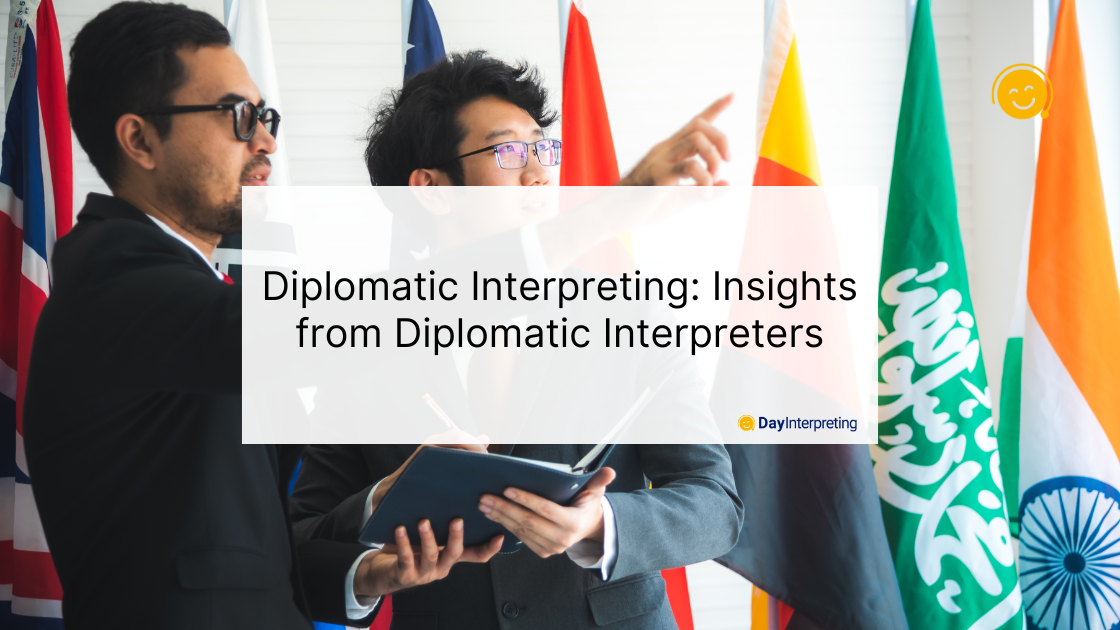Diplomatic negotiations have always been a complex arena where nations strive to find common ground, build alliances, and resolve disputes. The success of such negotiations often depends on effective communication, and this is where diplomatic interpreters play a pivotal role. These unsung heroes are responsible for bridging language barriers, ensuring accurate communication, and preserving the nuances of diplomatic discourse. In this article, we delve into the world of diplomatic interpreting, sharing experiences and insights from interpreters who work in high-stakes and sensitive international negotiations.
The Role of Diplomatic Interpreters
Diplomatic interpreters are the invisible enablers of international diplomacy. They are the linguistic conduits through which diplomats, world leaders, and officials convey their messages, ideas, and positions to one another. Their role goes beyond mere translation; it involves cultural sensitivity, discretion, and the ability to navigate intricate geopolitical landscapes.
The High-Stakes Environment
Diplomatic interpreters operate in an environment where the stakes are exceptionally high. A single misinterpretation or mistranslation can lead to misunderstandings, strained relations, or even diplomatic failures. They must, therefore, perform their duties with a level of precision and responsibility that few other professions demand.
Maintaining Neutrality
One of the fundamental principles of diplomatic interpreting is maintaining neutrality. Interpreters are not advocates for any party involved in the negotiations; their sole allegiance is to accuracy and clarity. They must set aside personal opinions and biases to ensure impartiality.
Experiences from Diplomatic Interpreters
To gain deeper insights into the world of diplomatic interpreting, we reached out to several experienced professionals who have played pivotal roles in international diplomacy. Here are some of their experiences and insights:
The Weight of Words
Interpreters often find themselves grappling with the weight of words. Every phrase they translate is significant, and the responsibility can be overwhelming. Mary, a seasoned diplomatic interpreter, shared her experience of translating during a tense negotiation between two nations on the brink of conflict. “I could feel the tension in the room,” she recalls. “Every word I uttered seemed to hang in the air, and I knew that the fate of many hung in the balance. It’s an experience that’s hard to describe.”
The Challenge of Nuance
Diplomatic negotiations often involve subtle nuances and cultural references that are lost in translation if not handled with care. John, another diplomatic interpreter, explained how he had to navigate a delicate situation involving a reference to a historical event. “The term used in one language had strong connotations that the other side might not understand,” he said. “I had to find a way to convey the historical context without derailing the conversation.”
Emotional Resilience
Interpreting in diplomatic settings can be emotionally taxing. Diplomatic interpreters are often privy to confidential and sensitive information that can be emotionally challenging to process. Sarah, who has worked in diplomacy for over a decade, emphasized the importance of emotional resilience. “You have to compartmentalize your emotions and focus on the task at hand,” she explained. “It’s not always easy, but it’s a crucial aspect of the job.”
Insights and Strategies
In addition to their experiences, diplomatic interpreters also shared valuable insights and strategies for success in their profession:
- Preparation is Key: Adequate preparation, including research on the subject matter and familiarity with the diplomats’ speaking styles, can significantly enhance the quality of interpretation.
- Continuous Learning: Languages evolve, and diplomatic terminology changes over time. Staying updated and continuously improving language skills is essential.
- Build Trust: Building trust with diplomats and officials is vital. Trust ensures smoother communication and minimizes misunderstandings.
- Teamwork: Diplomatic interpreters often work in pairs, taking turns to interpret. Effective teamwork and coordination are crucial for seamless communication.
Wrapping Up
Diplomatic interpreting is an art that demands precision, cultural sensitivity, and unwavering neutrality. The experiences and insights shared by diplomatic interpreters highlight the challenges and responsibilities they face in their profession. They are the silent facilitators of international diplomacy, helping nations communicate effectively and navigate the treacherous waters of global politics. Their work often goes unnoticed, but without their expertise, the world of diplomacy would be far less comprehensible and much more prone to misunderstandings and conflict. Diplomatic interpreters are, indeed, the unsung heroes of international relations.





0 Comments